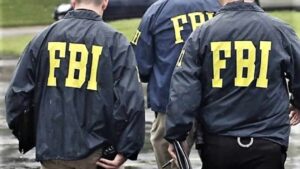
As blockbuster settlements go, this one is right up there. Not just for the horror of the underlying incident, or the number of victims, but for the prevailing legal theory that brought this result.
In 2015 white supremacist Dylann Roof shot up the Mother Emanuel AME Church in Charleston, S.C. in the hopes of starting a race war. After sitting and praying with the congregation for 45 minutes.
He was subsequently convicted of killing nine people and sits on death row. President Obama attended the memorial service and led the congregation in Amazing Grace.
Even in the annals of American mass shootings, this one stood out.
So why is the U.S. paying out $88M to the victims and their families? Because the FBI had a duty to conduct background checks on people buying guns at stores. They have a mere three days to do the check, and if they don’t do it by then, the store is allowed to sell the gun.
But one of the stumbling blocks that will prevent the purchase of a gun from a store is if there are outstanding charges against the person. And there was an outstanding charge against Roof (a drug possession charge).
But the FBI messed up their vetting, failed to respond, and the gun was sold to Roof.
Had the FBI not failed in its duty, Roof would not have had the gun.
The $88 million had some symbolism in the settlement:
Photos of Roof before the shooting show him wearing a shirt with the number 88. He also brought 88 bullets with him to Mother Emanuel AME Church the day of the 2015 massacre. White supremacists use 88 as a code for “Heil Hitler,” because “H” is the eighth letter of the alphabet
If you zip through the comments on the stories or scan through Twitter, you’ll see no end to comments questioning why it was the U.S. government paying when the racist pulled the trigger.
So here’s the answer.
The FBI had a duty, established by law, to do the background check. The FBI breached that duty by failing to do it properly. The sale of a gun to someone on the prohibited list was obviously foreseeable. People were injured or killed as a result.
The legal theory has its parallel in failed security cases. Take the apartment building with the broken lock for example. In a high-crime area the residents ask the landlord to fix it. The landlord has a duty to keep the premises reasonably safe, and bad actors are a foreseeable risk. The landlord breaches that duty by failing to fix the lock. Someone is raped or killed as a result. So there are multiple causes, that being the bad actor and the landlord with the duty to act.
Oft times, people are fixated on the issue of “the” cause being something else, in this case, the bad guy. But the law doesn’t speak to “the” cause, but rather, “a” cause. And not just any cause but a substantial one.
There can (and often are) multiple causes for an injury or death. Another example is the failure to diagnose cancer case. The doctor didn’t give the woman breast cancer. But a doctor’s failure to investigate the lump in her breast — a duty that exists when the lump is found or shown to the M.D. — allows it to grow and spread. Again, multiple causes.
And so with this horrid shooting, multiple causes. Of which the FBI’s failure was one, and a substantial one at that. It’s a failure because the FBI had that duty to act.
The issue of our failure to have a decent background check law is for another day, but there was a duty to comply with the one that we have.